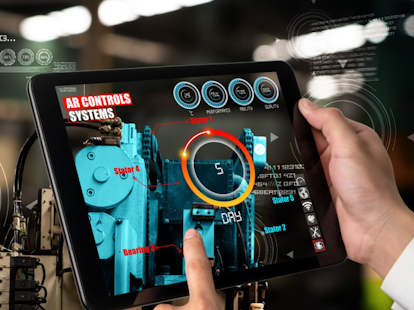Any electronic device marketed or sold in the US must have Federal Communications Commission (FCC) approval. How can suppliers of electronic devices to US markets ensure compliance in their products?
The FCC regulates electronic equipment to protect consumers and prevent radio frequency (RF) interference between digital devices by setting specific limits on the intentional and unintentional radio signals a device can emit. The limits set for devices that do not intentionally transmit radio signals are related to the environment in which the device is used.
These are:
- Class A – commercial and/or industrial
- Class B – residential
Class B has stricter requirements due to a greater risk of RF emissions from products that are used in the home.
Depending on whether the device intentionally or unintentionally radiates radio signals, there are two routes to approval for manufacturers and suppliers:
- Supplier’s Declaration of Conformity (SDoC)
- Certification
If the product intentionally radiates radio signals, it will require certification. Examples of devices falling into this category include Wi-Fi routers, Bluetooth devices, remote control transmitters and garage door openers.
If the device is an unintentional radiator, it can be authorized either via certification or SDoC. Examples in this category include IT equipment, audio-visual devices and power adapters.
Steps to FCC approval
To ensure an electronic device complies with FCC regulations for RF emissions, the manufacturer or supplier must submit it to an electromagnetic compatibility (EMC) testing laboratory for evaluation. If the device is to be authorized by SDoC, then no further action is required. However, if the product is to be authorized via certification, the following documents and information must be submitted to a Telecommunications Certification Body (TCB):
- Test reports from an FCC-approved testing laboratory
- Application form (sometimes referred to as a Form 731) that includes:
- Applicant’s FRN (Federal Registration Number)
- Applicant’s Grantee Code, makes up part of the FCC ID, which must be provided prior to submitting the application
- FCC ID Label and label location
- Internal and external photographs
- Test setup photographs
- User manual, schematics, block diagrams, parts list, tune-up procedure and theory of operation
- Other exhibits and letters may be needed to support the application package
A Grant of Equipment Authorization (FCC Grant) will then be issued, allowing the product to be legally sold on US markets.
For businesses involved in the manufacture, distribution, marketing and sale of electronics devices, these steps can be stressful, time-consuming and costly to navigate.
EMC/RF testing
EMC testing and RF compliance testing are critical aspects of the development process for any electronic device. EMC testing assesses a device’s ability to operate properly in its intended electromagnetic environment without interfering with other pieces of equipment. RF testing measures the characteristics of the intentionally radiated signal, as well as ensuring unintentionally radiated signals are below regulated limits.
Find out more about EMC/RF testing in our Consumer Compact article ‘Why EMC/RF Testing Matters’.
SGS Solution
We offer comprehensive testing solutions to help manufacturers ensure their products conform to a wide range of market regulations, including FCC compliance. Our experts can assistance with FCC testing and filing for Parts 15, 18, 22, 24, 27, 90 and 95, and provide TCB certification and filing for the FCC and Innovation, Science and Economic Development (ISED) in Canada.
Services include:
- EMC/RF testing
- Pre-scan and diagnostic testing
- Certification to 5G/LTE
- Testing to 802.11 Wi-Fi, Bluetooth and Zigbee
- ETSI EN 300 328 and ETSI EN 301 489-x
With an unrivaled global network of specialist laboratories, we are the first choice for manufacturers and suppliers of electronic devices when they need FCC approval.
How about: Electromagnetic Compatibility (EMC) Testing | SGS
Enjoyed this article?
Find more news and updates in our Consumer Compact newsletter >
Delivered direct to your inbox
Subscribe to Consumer Compact >
© SGS Société Générale de Surveillance SA.
SGS Building, Street no. N 203,
Jebel Ali Free Zone North,
Dubai, United Arab Emirates
.cdn.en-AE.1.png?fit=crop&auto=format&w=260&h=260)




